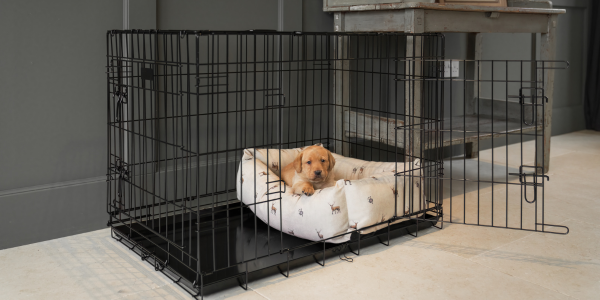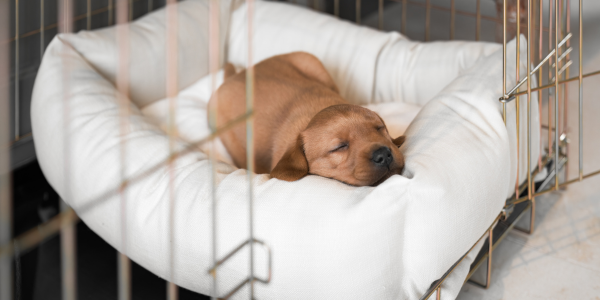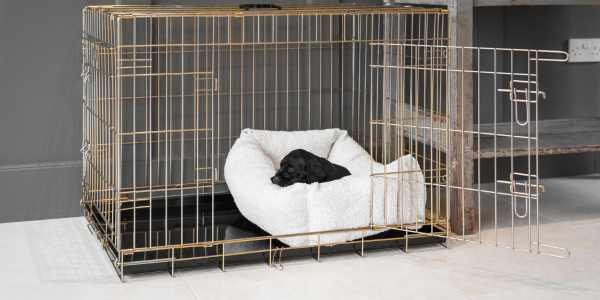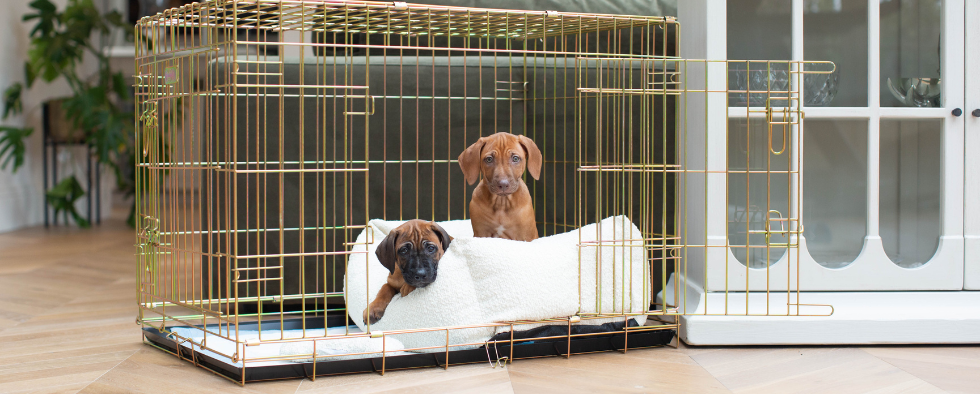Bringing home a new puppy is an exciting and joyous occasion, but it can also be a challenging one, especially when it comes to getting your furry friend to sleep through the night.
Puppy sleep patterns can be erratic, and their nocturnal activities can leave you feeling exhausted. However, with a little patience and some effective strategies, you can help your puppy develop healthy sleep habits that benefit both you and your new companion.
In this comprehensive guide, we will explore various methods on how to get your puppy to sleep through the night.
Establish a Consistent Routine

One of the most crucial steps in helping your puppy sleep through the night is to establish a consistent daily routine. Dogs are creatures of habit, and a set schedule can help regulate their sleep patterns. Ensure your puppy has regular mealtimes, potty breaks, and play sessions. Gradually, they will learn to anticipate restful periods at night.
Create a Comfortable Sleeping Environment
A comfortable sleeping environment is essential for your puppy to get a good night's sleep. Invest in a cozy dog bed or cage and place it in a quiet, dark, and comfortable location. Make sure the area is free from distractions and noises that could wake your puppy up during the night.

Exercise and Playtime
A tired puppy is more likely to sleep soundly if you provide them with stimulating activities during the day to help them burn off excess energy. Regular walks, interactive toys, and playtime can help tire out your furry friend, making it easier for them to settle down at night. However, avoid strenuous exercise too close to bedtime, as it might have the opposite effect and make your puppy more active.
Gradual Transition to Nighttime Routine
When it's time to wind down for the evening, establish a calming bedtime routine. This routine could include a short walk or bathroom break, followed by some quiet and relaxing activities. Reading a book or gentle petting can be soothing for your puppy. Avoid overly stimulating activities or rough play before bedtime.
Monitor Water and Food Intake
Limit your puppy's access to water and food in the hours leading up to bedtime. This can help prevent midnight bathroom trips. However, make sure not to deprive them of essential hydration or nutrients. Consult your veterinarian for guidance on the appropriate feeding and watering schedule for your puppy's age and breed.
Address Bathroom Needs
Young puppies have limited bladder control, and they may need to go out during the night. Be prepared to take your puppy out for a potty break if they wake up and seem restless. Keep the outings brief and business-like, without play or excitement, to encourage your puppy to go back to sleep quickly.
Use Cage Training
Cage training can be an effective method to teach your puppy to sleep through the night. Dogs instinctively avoid soiling their sleeping area, so a properly sized cage can help them learn to hold their bladder until morning.
Make the cage comfortable with bedding and introduce it gradually to your puppy so that they associate it with safety and comfort. Our luxury cage bedding is perfect for creating a cozy den for your puppy. We recommend our Cozy & Calming Puppy Cage beds to put in your puppies cage, they fill half the cage so you can put a puppy pad on the other half to help with your puppies toilet training and nighttime routine.

Positive Reinforcement
Positive reinforcement is a powerful tool in training your puppy to sleep through the night. Reward your puppy when they settle down quietly in their sleeping area or crate. Use treats, praise, and gentle petting to reinforce this behavior, creating a positive association with bedtime.
Avoid Punishment
It's essential to remain patient and avoid punishment if your puppy has a rough night or has accidents in the house. Punishment can create fear and anxiety, which can exacerbate sleep problems. Instead, focus on positive reinforcement and consistency in your training efforts.
Consider Professional Training
If your puppy's sleep issues persist despite your best efforts, consider seeking the help of a professional dog trainer or behaviorist. They can provide guidance tailored to your puppy's specific needs and temperament.
How to Help Older Dogs Sleep Through the Night
While this guide primarily focuses on puppies, it's worth mentioning that older dogs can also experience sleep disturbances. If you have an older dog with sleep issues, consult your veterinarian to rule out any underlying medical conditions, such as arthritis or discomfort. Additionally, many of the strategies mentioned above, such as establishing a routine and creating a comfortable sleeping environment, can be applied to help older dogs sleep more soundly.
Getting your puppy to sleep through the night may require some effort and patience, but with the right approach, you can establish healthy sleep habits that benefit both you and your furry friend. Remember to be consistent, use positive reinforcement, and create a calming bedtime routine. In time, your puppy will learn to sleep peacefully through the night, allowing you both to enjoy the rest you need to thrive together.

